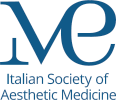ARTICLE
Fraud, in the field of scientific research, can harm patients, twist evidence and cause significant waste of economic resources. This misconduct severely affects the trust built upon the scientific research, and its distribution channels 1. In today’s scientific landscape, we should develop a critical sense towards what we read, without obtusely embracing what is proposed to us as true. Over the past few years, an exponential growth in the number of scientific publications has been witnessed 2. However, the publication of fraudulent scientific articles in highly ranked journals, emphasizes how the accuracy and authenticity of publication is often corrupted by abuses and profits. In this regard, the question arises about how the moral integrity of a part of the scientific community has been undermined to such an extent. To encourage this fraudulent approach, there is the concept that the authority of a journal is weighted on the number of its articles’ quotes. As a result, the visibility of a scientific article is related to the journal indexing, and the researcher’s reputation increases with the number of his publications and citations. This system induces a spasmodic race for massive scientific publication at the expense of its quality, triggering the “publish or perish” mechanism, exploiting mainstream arguments or, even worse, mystifying scientific data and results. When manipulated or invented, a researcher’s scientific production becomes uniquely directed toward career advancement and self-reference, compromising scientific development, and knowledge of the discipline. “Impact factor abandoned by Dutch University in hiring and promotion decisions” is the title of an article published on Nature in 2021 3. These words represent a cry of rebellion against a mechanism that is harming the scientific community, with the intention of depriving the prevailing collective and individual judgment power of a numerical index (Impact Factor), in favor of meritocratic judgment principles. In support of this position, Professor Per O Seglen, analyzed the problems resulting from the use of the Impact Factor as a way of evaluating scientific research in a study conducted by the Institute for Studies in Research and Higher Education. In recent years we have seen an exponential growth in the number of withdrawn or contested articles. According to the report of Enrico Bucci, researcher in Complex Systems Biology, between 0.5 and 20% of articles are found to have “problems” 4. The reasons that can lead to the withdrawal of a scientific article are for production, falsification, or plagiarism, often moved by individual conflicts of interest. A recent case was the one of the article published by the Lancet in the COVID-19 period and withdrawn shortly thereafter. The author, Professor Mandeep Mehra, a cardiac surgeon at Harvard University, firmly rejected the use of Hydroxychloroquine as a drug for the treatment of COVID-19. Alerts on the unreliability of the work’s results and inconsistency of data, were made by The Guardian, and led to an investigation that brought to light the authors’ inability to guarantee the validity of their study 5. The news had significant media impact, which inevitably led to a public feeling of distrust, resulting in the difficulty to recruit patients willing to test the true efficacy of the drug, thereby putting a halt to the research. “As editor of a scientific journal, ensuring the integrity of what we publish is perhaps my most difficult task,” claims Howard Bauchner, editor of JAMA. Even more objectionable is the request of a financial compensation for the publication of a “paper,” corrupting and compromising the transparency and meritocracy of the scientific work, a ploy that is well hidden behind the legitimate publication fee.
As a corollary to the above, we started the first world scientific journal of plastic reconstructive and regenerative surgery, open access and peer-reviewed, without any publication fee. With the intent to marginalize this system of corruption, the journal succeeded in bringing together all Italian scientific societies in the field for the first time 6,7. PRRS has become the official organ of the Italian Society of Microsurgery (SIM) and the Italian Society of Plastic Reconstructive and Aesthetic Surgery (SICPRE), as well as a partner of the Italian Association of Aesthetic Plastic Surgery (AICPE) and the Italian Society of Aesthetic Medicine (SIME). As Editor-in-chief of the journal, we hope that this effort will be welcomed by the scientific community and may be the spark for a meritocratic evolution in the field of scientific publication and dissemination.






